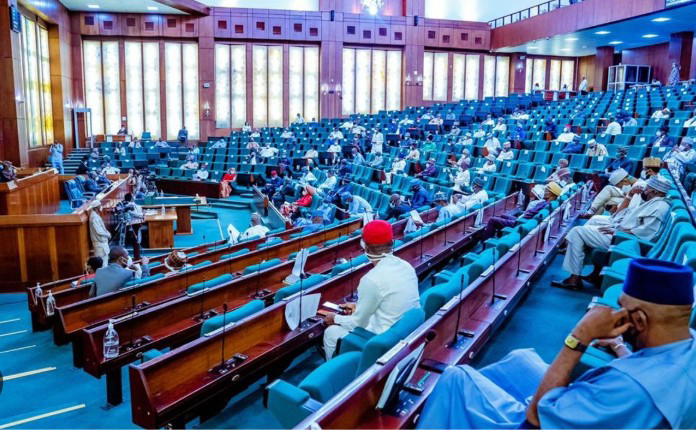…Pledge Commitment to Transforming Vocational, Technical, and Entrepreneurship Education
By Gift Chapi-Odekina, Abuja
The House of Representatives Committee on Alternative Education has held a one-day public hearing on four bills seeking to establish vocational and skills acquisition training centres across different parts of Nigeria.
The event, held on Monday in Abuja, brought together key stakeholders from government, academia, industry, and professional bodies — including the Nigerian Society of Engineers (NSE) — to deliberate on the proposed legislative frameworks aimed at strengthening technical education and youth empowerment.
In his opening remarks, Speaker of the House, Rt. Hon. Tajudeen Abbas, represented by Rep. Paul Nnamchi, said alternative education was born out of necessity, describing vocational, technical, and entrepreneurship education as the vital bridge between academic qualifications and employable skills for national development.
Also speaking, representatives of the South-East Development Commission (SEDC) expressed support for the proposed institutions, noting that they align with the Commission’s mandate to promote technical and entrepreneurship education.
Representing the Executive Director of SEDC, Mr. Ifejika Sunday reaffirmed the Commission’s commitment to initiatives that enhance technical capacity and reduce youth unemployment in the region.
Declaring the hearing open, Chairman of the Committee, Hon. Ibrahim Almustapha Aliyu (Wurno/Rabah Federal Constituency, Sokoto State), described the initiative as a bold step toward addressing unemployment, promoting entrepreneurship, and strengthening Nigeria’s human capital base through practical education.
“Vocational training and entrepreneurial skill acquisition are fundamental drivers of national development,” he said. “Nigeria’s youthful population remains a valuable asset that must be empowered through skills training and alternative education for self-sufficiency and national progress.”
Hon. Aliyu commended Speaker Abbas for his foresight in establishing, for the first time, a dedicated Committee on Alternative Education to bridge learning gaps and provide opportunities for millions of Nigerians outside the formal education system.
The four bills under consideration include: A Bill for an Act to Establish the South East Institute for Vocational and Entrepreneurial Studies, Umuobum, Imo State (sponsored by Hon. Ikeagwuonu Onyinye Ugochinyere — HB.2263);
A Bill for an Act to Establish the Federal Institute of Technical Education and Skills Acquisition, Mbaise, Imo State (sponsored by Hon. Chinedu Emeka Martins — HB.2342);
A Bill for an Act to Establish the Federal College of Entrepreneurship and Skills Acquisition, Ilorin West, Kwara State (sponsored by Hon. Muktar Tolani Shagaya — HB.554); and
A Bill for an Act to Establish the National Institute for Vocational and Entrepreneurial Studies, Agadagba-Obon, Ese-Odo, Ondo State (sponsored by Hon. Donald Kimikanboh Ojogo — HB.2033).
Presenting its memorandum, the Nigerian Society of Engineers (NSE) commended the House for advancing Technical, Vocational Education and Training (TVET) through legislation, describing it as key to national productivity and innovation.
The NSE proposed harmonising the institutional names for policy coherence, recommending a unified naming format such as Federal College of Technical Education and Skills Acquisition (FCTESA), [Location, State].
The engineers also suggested that the heads of the proposed institutions be designated as Principals rather than Rectors or Provosts, and that the institutions be placed under the regulatory oversight of the National Board for Technical Education (NBTE) and the National Business and Technical Examinations Board (NABTEB) for consistency in quality assurance and accreditation.
In its submission, the NSE raised governance concerns and recommended clearer appointment processes to prevent political interference. It also called for institutional autonomy, merit-based appointments, and the designation of the Minister of Education as the “Visitor” to the institutions for proper oversight.
Specifically, the NSE noted that HB.2263 (Imo State) wrongly places the proposed institute under the National Commission for Colleges of Education (NCCE), despite its technical and entrepreneurial focus — a move the engineers said could create “an identity crisis and accreditation conflicts.”
The body urged lawmakers to ensure all technical institutions remain under NBTE regulation for coherent curriculum design and recognition of qualifications.
In his closing remarks, Hon. Aliyu thanked the NSE and other stakeholders for their constructive inputs, assuring that all recommendations would be carefully reviewed before submission of the Committee’s final report to the House.
“Our duty as legislators is to ensure these institutions are founded on strong legal and operational frameworks,” he said. “Together, we can empower our youths with the skills they need to build a more prosperous Nigeria.”
The hearing was attended by representatives of the Federal Ministry of Education, NBTE, NABTEB, civil society groups, and youth-focused organisations — all expressing support for the establishment of well-regulated technical and vocational training centres nationwide.
The post Reps move to establish vocational, skills training centres nationwide appeared first on Vanguard News.

